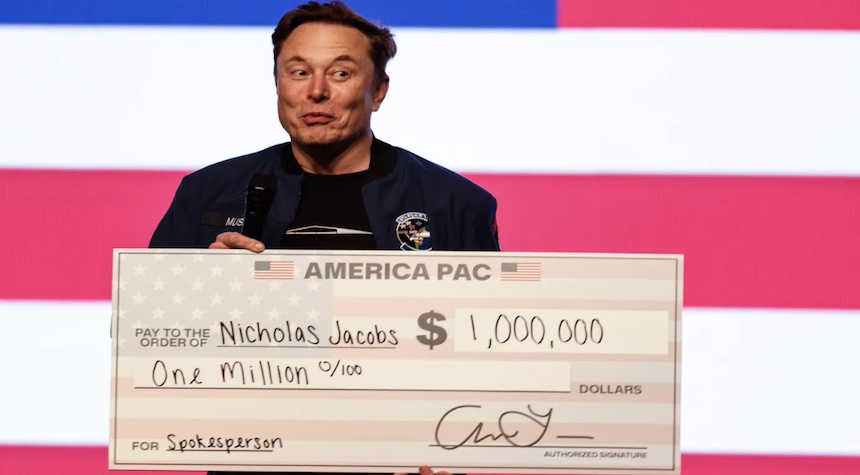A legal challenge was initiated this week by the Wisconsin Democracy Campaign, a watchdog group that aims to keep an attentive eye on government activities. They seek to prevent billionaire industrialist Elon Musk from offering cash inducements to voters in the state, as he did during the recent Supreme Court race.”
It has been reported that Musk disseminated three checks, each worth a staggering $1 million, to voters in Wisconsin. Two of these checks were handed over personally shortly before the state’s Supreme Court election on April 1. This maneuver was part of his concerted effort to secure the office for the conservative candidate Brad Schimel.
Musk, through his political action committee named America PAC, also offered a hundred-dollar incentive to voters who signed a petition voicing their objection to ‘activist judges’ or referred others to do the same. These actions formed part of a larger strategy that saw more than $20 million spent by Musk and his affiliates in a bid to shift the balance of power in the Wisconsin Supreme Court.
More than $100 million was spent by both sides, making it the costliest court race in U.S. history.

Reports indicate that despite this unprecedented expenditure, Musk’s chosen candidate was defeated by Democratic-backed Susan Crawford by a margin of 10 percentage points. This outcome has ensured a 4-3 liberal majority on the Wisconsin Supreme Court until at least 2028.
According to reliable sources, Musk, post-election, stated he would curtail his political campaign spending. He has since had a public disagreement with President Donald Trump following his departure from the administration.
The lawsuit filed in state court by the Wisconsin Democracy Campaign argues that Musk’s actions pose “the risk that Wisconsin elections will become an open auction, where votes go to the preferred candidates of the highest bidders and the election outcome is determined by which candidate has a patron willing and able to pay the highest sum to Wisconsin voters.”
This raises important questions about the nature of campaign financing and the potential for undue influence exerted by wealthy individuals.
The court that Susan Crawford will join come August might very well have to adjudicate this new lawsuit. If she were to recuse herself from the case, this would result in a 3-3 split between conservative and liberal justices.


